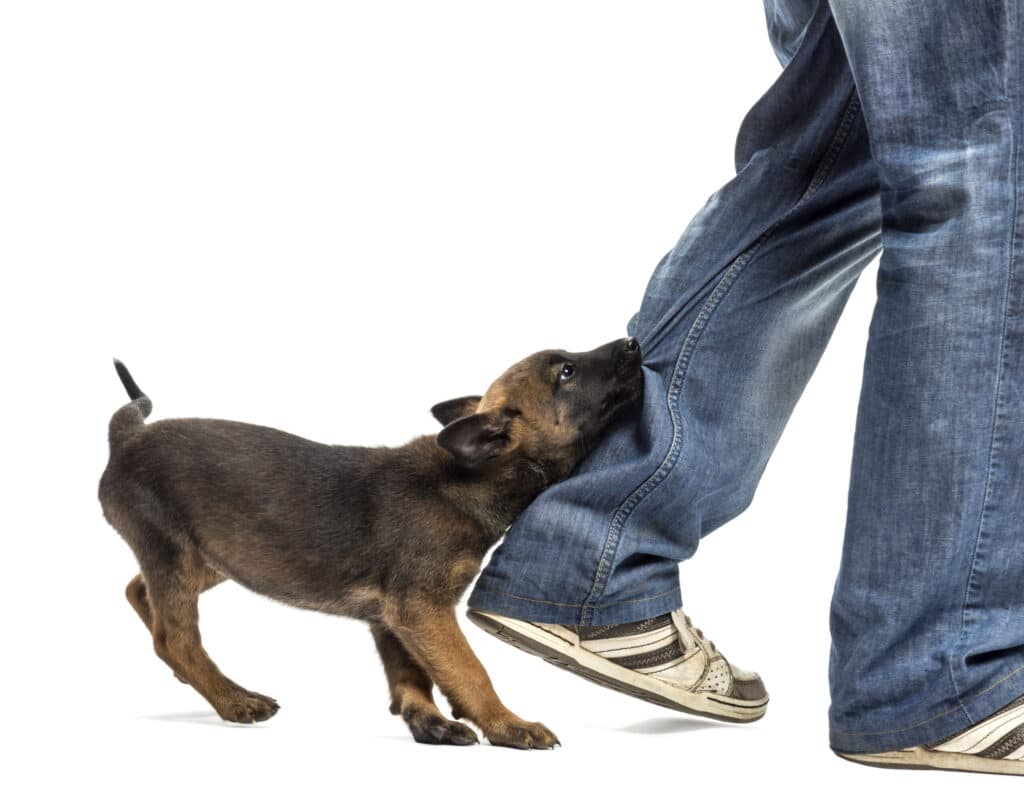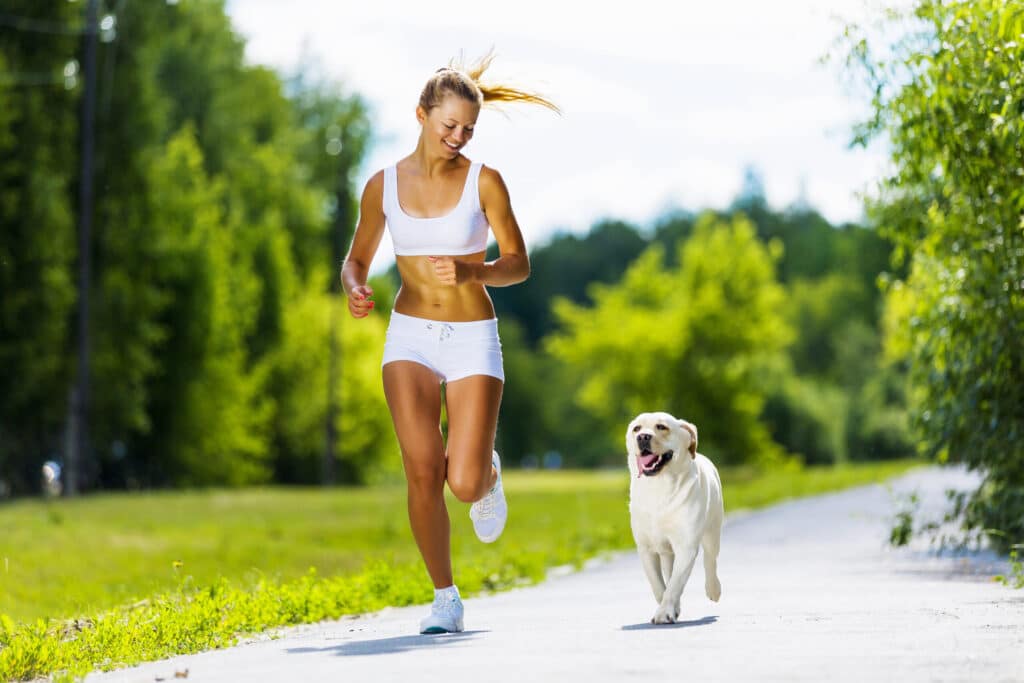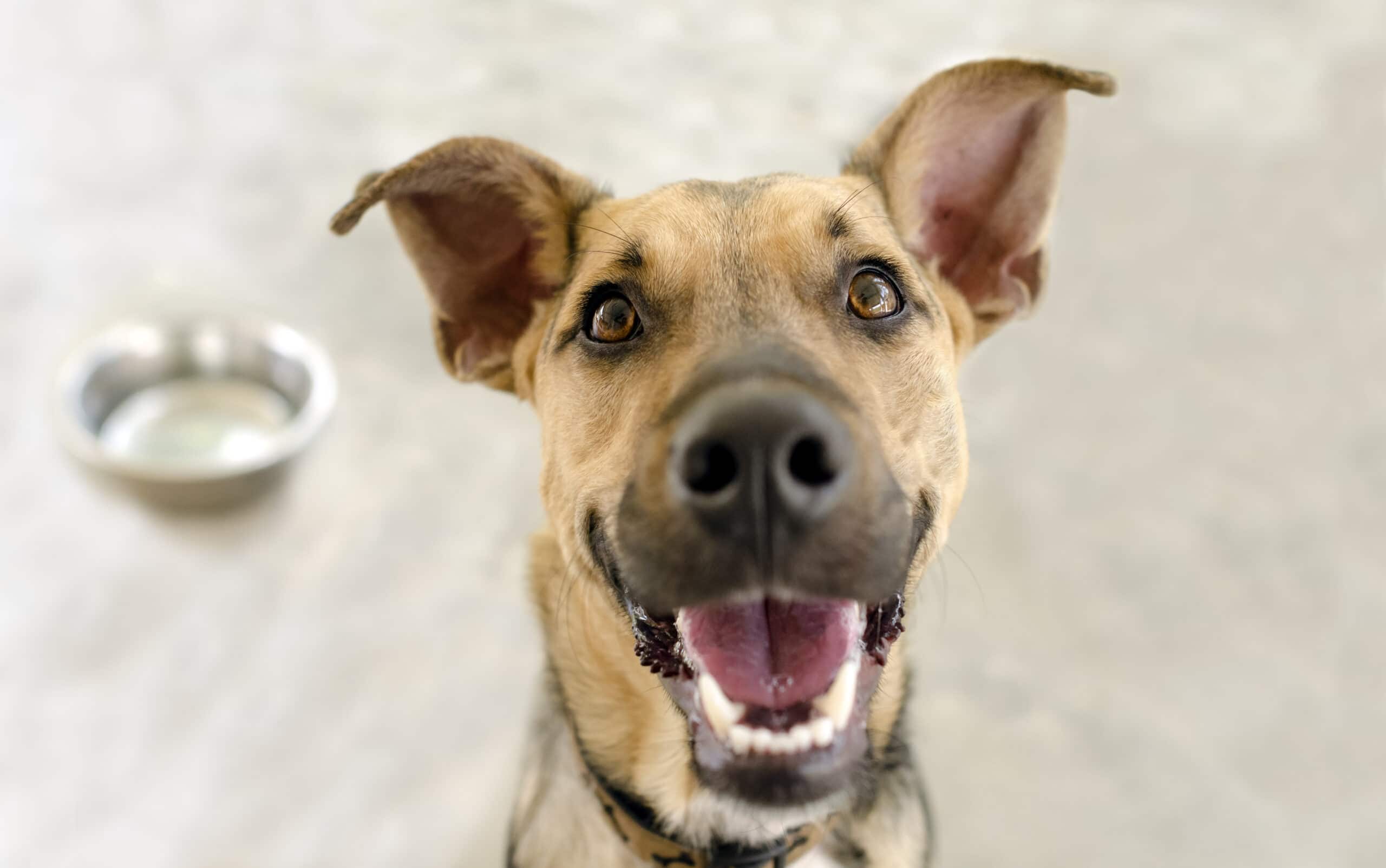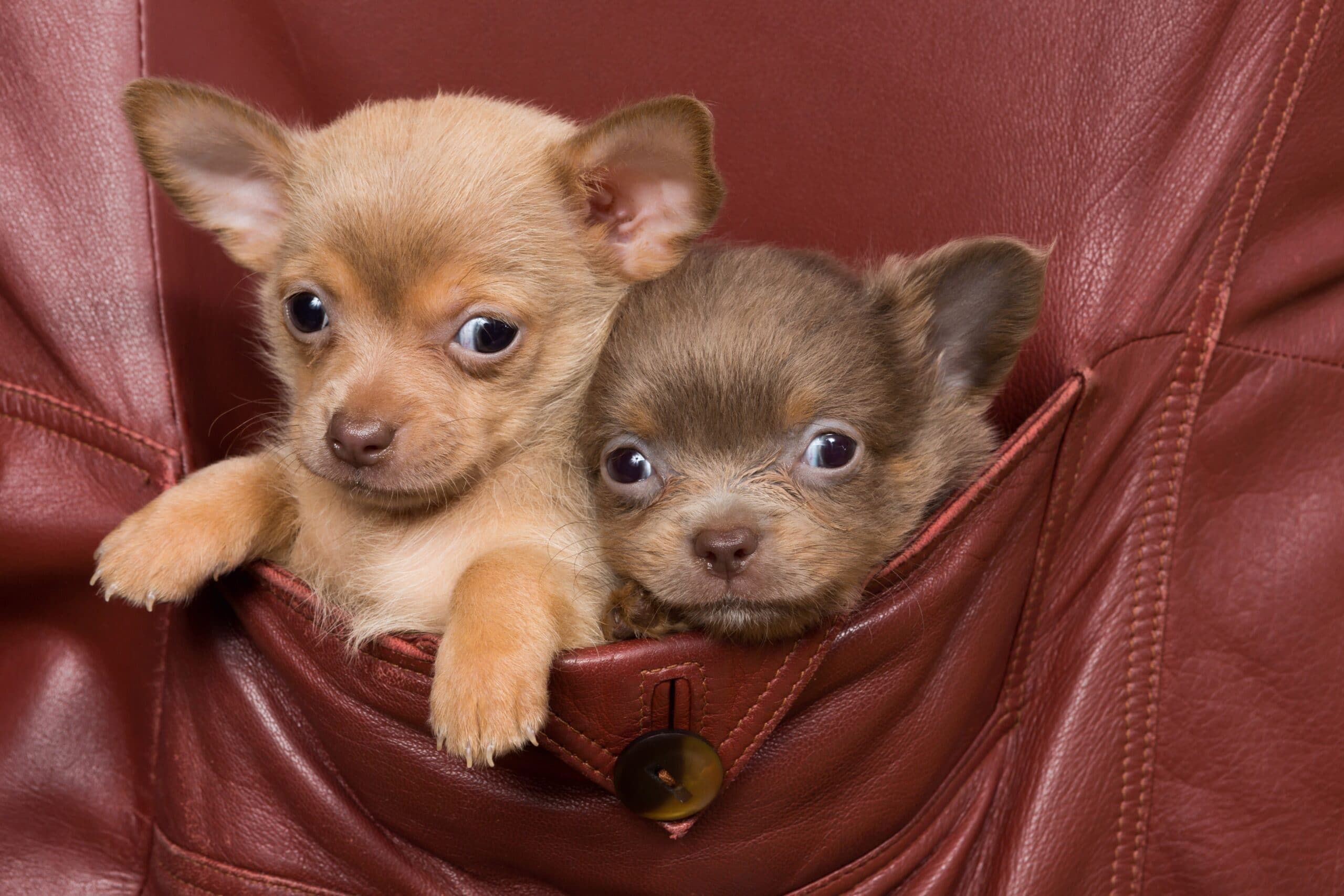How to stop my dog from biting when excited?
Dogs that bite when they are excited are challenging, annoying, and dangerous.
Puppies that bite while playing grow out of it, but adult dogs will continue to bite if not taught to behave in the right way.
Today we are going to answer your question, “how to stop my dog from biting when excited.”
An overexcited or highly aroused dog is over-aroused by stimuli that other dogs would respond to calmly.
A highly aroused dog’s eyes will appear wild and almost panicked. They are not in a position to think.
How to identify an over-excited dog?
A dog that is over-excited usually:
- Runs all over the place very fast
- Barks without stopping
- Mouths hands, and feet of people around and sometimes quite forcefully
- Jumps and scratches people
- Knocks over children or other dogs
- Bangs into people
- Pulls at the leash in a game of tug of war
So why does your dog bite when excited?
Your dog can bite when excited for the following reasons:
- Your dog is keen to play, and he wants to have something in his mouth, and your hands and feet happen to be nearby.
- Your dog is in the mood to play, and he is attracted to your moving hands and feet.
- Your dog likes your reaction when he bites you; you cry in pain or draw your hand away fast.
- Your dog likes mouthing or jaw wrestling (dog plays with mouth open) with other dogs, and he thinks that you may also like it.
- Your dog is trying to self-soothe by putting something in his mouth, and your hand or feet seems irresistible.
- You have a high aroused dog (over-excited dog) who reacts by barking, jumping up, and biting.
Everyone will agree that these dogs are a handful to deal with and not fun to have around.
Things to know before starting bite inhibition training
Biting due to excitement is not typically dangerous. Though it hurts, your dog is not biting to hurt you. When your dog bites due to over-excitement, he is playful and not aggressive. However, it’s possible for arousal biting to change into aggressive biting if the dog is overstimulated or gets frustrated.
Difference between playful mouthing and aggressive biting

Most mouthing in adult dogs is playful, but when the bite is due to fear or frustration, there may be a problem of aggression. It is difficult to differentiate between playful mouthing and mouthing before aggression.
Playful mouthing signs
- A playful dog will appear relaxed: both body and face.
- The dog’s muzzle may appear wrinkled, but there will not be tension on the face.
- Playful mouthing is not as painful as aggressive biting.
Aggressive biting signs
- The body of an aggressive dog will be stiff.
- The muzzle will be wrinkled, and lips are pulled back to expose teeth.
- Aggressive bites are quick and more painful than playful mouthing.
If it appears that the biting is due to aggression, don’t attempt to handle the mouthing or biting on your own. Seek professional help to sort out the behavior issue.
Here are training tips to stop your over-excited dog from biting:
1. Use food to distract
When you see your dog getting excited, take a fistful of treats and spread it on the floor. Your over-excited dog will get busy sniffing out the tasty treats and eating them up. The process of finding the treats and eating with help to calm your dog down.
Eating the treats will help your dog to calm down. Afterward, you can start working on the behavior with appropriate training. It is unlikely that your dog will start jumping and getting excited after this.
However, if your dog ignores the treats and continues to act over-excited and bite, try another method.
2. Claim more space
If the dog is excited, you can step forward and claim more of his space. However, remember to keep your body straight and stay calm while doing this.
Don’t resort to any negative behaviors, including raising your voice or pushing; you need to take a step toward your dog. Most dogs should calm down when you do this. Don’t try this method with a dog that may be frightened of you or seem to be aggressive.
3. Don’t show any excitement
Dogs that get over-excited bite when we share their excitement by waving our hands and make exciting sounds.
When we act, excited dogs think of us as exciting toys and end up biting. However, some dogs calm down and stop biting when we stay quiet and uninteresting.
You can make yourself dull and uninteresting and couple it with the treat scattering method to calm your dog down.
4. Exit the scene
If all else fails and your over-excited dog continues to bite, leave the room for a few minutes. Your dog will no longer have the source of excitement: your presence and your moving hands and feet to bite.
You can return after a few minutes and see if your dog will sit down by offering some treats.
It would help if you continued to repeat this method of leaving the scene whenever your dog acts over-excited. Over time your dog will understand that staying calm is more beneficial.
5. Use a leash
Leash your dog when you have visitors coming over to your house; this will allow you to keep the dog close to you and prevent him from biting anyone.
You can also use a dog gate or a crate while training your dog to remain calm. A muzzle can also be helpful to protect your fingers while the training is in progress.
If this is the method that you choose to use, provide your dog with treats when he remains calm behind the gate.
If you ignore him, he might get all excited again when you open the barrier and allow him to get out.
6. Don’t resort to punishment
Don’t punish your dog as it can create other problems, including aggression.
Don’t use methods such as alpha roll ( forcing the dog on its back and holding it down), grabbing the dog by its scruff, grabbing the dog by its muzzle, or jerking the dog by its leash. Such methods will lead to behavior issues, and your dog will not learn the required lesson.
When your dog nips or bites in an excited state, you can remove the things he likes to show him there is a consequence for his action. When he is calm, you can reward him with a treat to show him that there is a benefit to remaining calm.
7. Teach the correct type of behavior
Allowing your dog to associate biting or nipping you with a good outcome, such as an exciting playtime, will reinforce the wrong behavior. On the other hand, if remaining calm allows your dog to come out of the crate, he will learn the correct type of behavior.
With repetition, your dog will learn that jumping and running around will not get him attention but time alone in the crate. You should reward your dog with attention and treats when he is calm to reinforce the correct behavior.
Just make sure that the consequences you give him for every action help teach him the correct behavior.
8. Lots of physical exercises

Ensure that your dog gets ample exercise to burn off the excess energy. Exercise on its own will not stop your dog from biting. However, less energy can help your dog to remain calmer. Going for long walks or playing fetch etc., can help.
9. Be consistent
You must follow the training and redirection methods consistently. Every member of your household should follow the same rules to ensure that your dog is not left confused.
10. Mental exercise for hyperactive dogs
Involve your dog in mental exercises, which can also help to calm your furry friend down.
Hide treats around the house while your dog waits in the bathroom or a closed room. Once you let him out, your dog needs to sniff and find the treats. You can make it harder by playing the search game in a larger place or outside the house.
You can also use puzzle toys to help your dog use his problem-solving skills. In addition, puzzle toys will help to tire your dog out mentally.
11. Redirect bites
Use redirection to teach your furry friend to stop biting. Every time your puppy or dog tries to bite your hands or feet, direct their attention to something else.
- When your dog is about to bite, give him a toy. Move the toy, make some noises or do whatever is required to make the toy more enjoyable than biting you.
- If your dog doesn’t accept the toy, remain still. Dogs like to chase things that move, so you make yourself less attractive if you stay still.
- It’s hard not to pull away when your over-excited dog tries to mouth you. However, the quick action of removing yourself away will make the over-aroused dog even more excited, leading to more biting.
- Make sure to use a toy that your dog can’t destroy quickly, and you need to redirect her attention to the toy every time she is about to bite.
12. Socialize
You should socialize your dog or puppy if he is in the habit of biting due to over-arousal. For specific tips on dealing with biting behavior in puppies check our article on How to make a puppy stop biting – 13 tips.
You can socialize him with other dogs or puppies to help him pick up good manners. They will learn from other dogs that rough play is unacceptable and can quickly bring playtime to an end.
Getting your dog to feel comfortable with people and other dogs is necessary for healthy social development. It breaks the fear of people and makes it easier to engage them in training to inhibit biting.
13. Clicker Training
Clicker training which uses positive reinforcement, is a fun and effective training method.
Clicker training is used to teach a dog everything from basic to complicated commands. The dog learns that the sound of the clicker will get them a treat. The sound tells your dog that he did something right.
In this method, you sound the clicker when your hand is in front of your dog’s mouth, and he doesn’t bite you. You will sound the clicker and give him a treat.
Teaching bite inhibition using a clicker
- Bring your hand near your dog’s mouth, and if he doesn’t bite, you make a click, give him a treat and praise him.
- If your dog doesn’t bite your hand when you bring it near his mouth, you can start waving your hand near his mouth, and if he doesn’t bite, click, give him a treat and praise him.
- When you bring your hand near your dog’s mouth, he might nip you the first time but continue to click and give treats for even minor improvements. With consistent effort, your dog will stop biting everything that gets near his mouth.
- The click and treat method requires significant practice and can’t be achieved in a few sessions. Consistent training is key to achieving success.
14. Understand patterns and counteract
Figure out when your dog gets excited and work to counteract it.
- Your dog can get excited when you return from work and greet him. To avoid this, use a casual greeting or no greeting when you get home from work.
- If mealtime is getting your dog over-excited, you can keep changing when you serve meals to control anticipation.
- Similarly, if your dog gets over-excited when it’s time for his walk or in anticipation of a walk, you can give him mixed cues to calm him down. You can take the leash and put it back, or you can pick up the keys and put it back until your dog calms down. These cues will help your dog to understand that you will not be going out until he is in a calm state.
15. Interrupt play
Keep interrupting your dog during play to help him calm down. You can interrupt by calling your dog over to you while playing or asking him to sit. Then, you can let him get back to his play when he seems calm. Once play is over, ensure that your dog is calm and relaxed before starting another activity.
16. Engage your dog’s sense of smell
Your dog’s sense of smell is powerful; in fact, it’s estimated to be 100,000 times more powerful than ours.
Engaging a dog’s sense of smell can help to calm an over-excited dog. Lavender, vanilla, cedar, chamomile, and peppermint are calming scents. They become even more powerful when linked to intervals when the dog is calm. Place a scented air freshener near your dog’s bed. If you are not sure what scent works best, consult your veterinarian.
17. Seek help from a dog trainer
Consult a professional dog trainer if your over-excited dog continues to bite. A professional dog trainer will be able to identify the problem and start the training process.
Conclusion
While over excitement can make your dog bite, it’s not impossible to correct the behavior. The key is to stay calm when your dog is excited and follow the training methods consistently. Don’t encourage the dog by making excited noises or through sudden movement of hands or feet.






